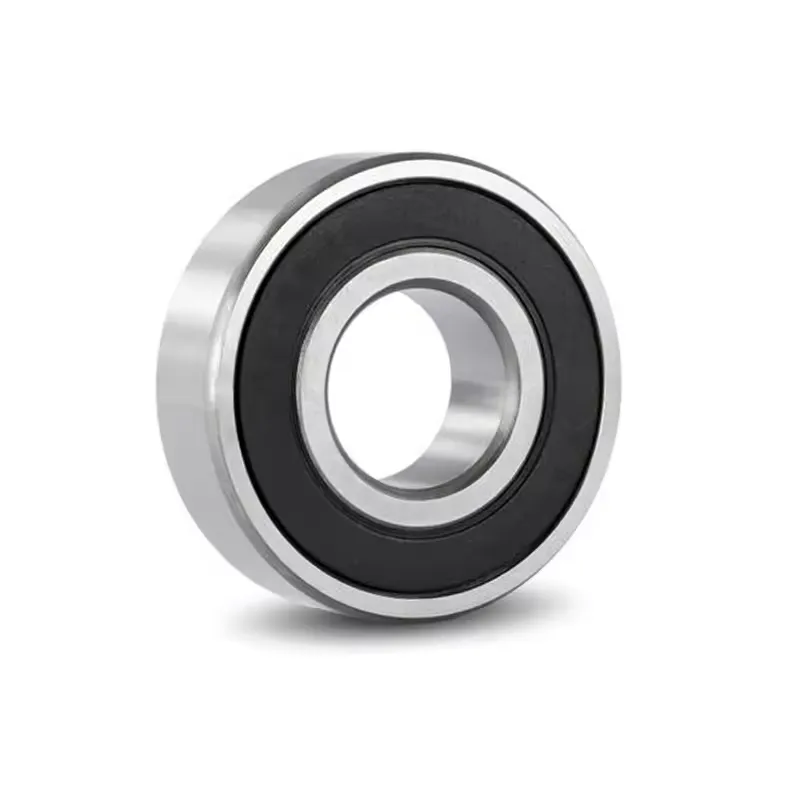Dec . 10, 2024 04:57 Back to list
full ceramic bearings
Understanding Full Ceramic Bearings A Comprehensive Overview
Full ceramic bearings are an innovative and advanced alternative to traditional steel ball bearings and hybrid ceramic bearings. These specialized components are made entirely from ceramic materials, such as silicon nitride (Si3N4), which offers numerous advantages over their conventional counterparts. As industries increasingly seek components that can withstand extreme conditions, improve performance, and extend service life, the demand for full ceramic bearings continues to grow.
Composition and Manufacturing
Full ceramic bearings are primarily composed of ceramic materials, including the inner and outer rings, balls, and sometimes the cage. Silicon nitride is the most commonly used material due to its low density, high strength, and excellent thermal properties. The manufacturing process involves advanced techniques such as sintering, where powdered materials are compacted and heated to form a solid structure. This process ensures that the bearings achieve uniform density, durability, and precision, which are critical for optimal performance.
Key Advantages
1. Corrosion Resistance One of the most significant benefits of full ceramic bearings is their resistance to corrosion. Unlike steel bearings, which can rust or corrode in the presence of moisture or certain chemicals, ceramic materials are inert and can withstand aggressive environments. This makes them ideal for applications in the food and beverage industry, marine environments, and chemical processing.
2. Temperature Resistance Full ceramic bearings can operate efficiently in extreme temperature conditions, from cryogenic levels to high heat applications. They typically have a higher operational temperature range than metal bearings, which allows them to maintain performance without significant thermal expansion or loss of structural integrity.
3. Low Friction The smooth surface of ceramic materials leads to reduced friction compared to traditional metal bearings. This characteristic results in enhanced efficiency and can contribute to energy savings in machinery and equipment. For applications where precision and speed are critical, such as in high-performance motors or aerospace components, the low friction of ceramic bearings can be a game-changer.
4. Lightweight Ceramic materials are significantly lighter than metal, which translates to lighter bearings. This weight reduction can improve the overall efficiency and performance of machinery, especially in applications requiring high-speed operation or reduced inertia.
full ceramic bearings

5. Electrical Insulation Full ceramic bearings are non-conductive, making them suitable for electrical applications where the risk of short circuits is a concern. This property is particularly valuable in electric motors and generators, where avoiding electrical conductivity is paramount.
Applications
Full ceramic bearings are used in a wide range of applications across various industries due to their superior properties. They are particularly favored in sectors such as
- Aerospace In aircraft engines and components, where reliability and performance at high altitudes and temperatures are critical. - Medical Equipment For devices that require sterile, corrosion-resistant materials, such as surgical instruments and imaging devices. - Food Processing In environments where cleanliness and resistance to corrosive substances are crucial. - Robotics Due to their lightweight nature and ability to handle high-speed rotations and temperature variations.
Considerations
While full ceramic bearings offer numerous advantages, they can also come with some drawbacks. Higher initial costs compared to traditional bearings may limit their use in some applications. Additionally, ceramically made components can be more brittle, which may lead to potential failure under excessive load or shock. It’s essential for engineers and designers to evaluate the specific requirements of their applications to determine if the advantages of full ceramic bearings outweigh the potential downsides.
Conclusion
In summary, full ceramic bearings represent a significant advancement in bearing technology, providing exceptional performance characteristics in demanding environments. Their unique properties—corrosion resistance, lightweight design, low friction, and excellent temperature stability—make them ideal for various high-performance applications. As industries continue to evolve, the role of full ceramic bearings will become increasingly prominent, leading to innovations and improvements across multiple sectors. For those considering upgrading their machinery or equipment, full ceramic bearings offer a reliable and efficient solution that is worth exploring.
Latest news
-
BB 15-25 One-Way Cam Clutch Bearing | Reliable Sprag Backstop
NewsJul.21,2025
-
Best SEO Optimization Tool: Boost Rankings Fast & Easily
NewsJul.21,2025
-
25MM 2 BOLT UCFLX05-14 Flange bearing unit( oval)
NewsMar.07,2025
-
4 bolt UCF 200 series Pillow block bearings
NewsMar.07,2025
-
25MM 2 BOLT UCFLX05-14 Flange bearing unit( oval)
NewsMar.07,2025
-
UCF216-50 4-Bolt Flange Housing Square Bearing
NewsMar.07,2025





